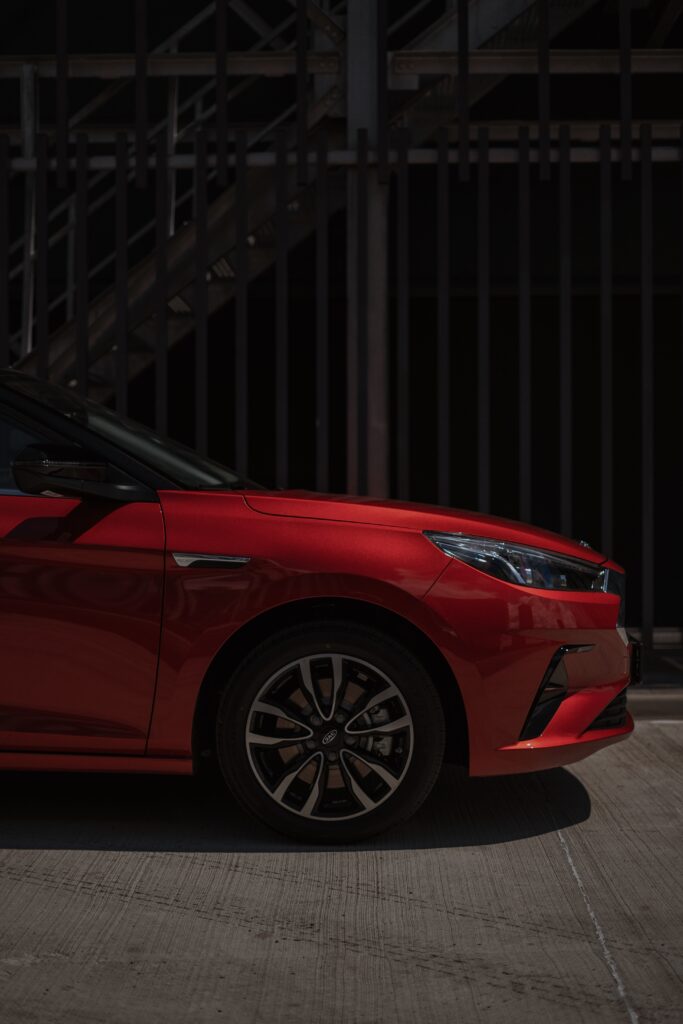Hey there, e-bike enthusiasts! Are you ready to take your e-bike riding to the next level? In our “Advanced E-Bike Riding Tips” section, we aim to guide you through the intricate technical aspects of e-biking. From advanced security measures to extreme uphill climbing techniques, we have you covered. However, before we dive into the advanced stuff, let’s tackle a common dilemma: electric bike or scooter? In this article, we will present you with detailed pros and cons to help you make an informed decision. So, if you’re uncertain about which option is right for you, keep on reading!
Introduction
Hey there! Are you in the market for a new mode of transportation that is both efficient and eco-friendly? Look no further than electric bikes and scooters! In this comprehensive article, we will explore the pros and cons of both electric bikes and scooters to help you make an informed decision.
Electric Bike
Definition and Functionality
Electric bikes, also known as e-bikes, are bicycles equipped with an electric motor that assists the rider while pedaling. These bikes come in various designs and styles, ranging from traditional-looking bicycles to more futuristic and sleek models. The electric motor in these bikes provides an additional boost to the rider’s pedaling power, making climbing hills and tackling long distances much easier.
Advantages
Electric bikes offer several advantages that make them an attractive option for many riders. Let’s take a look at some of these advantages:
1. Environmental Friendliness
One of the most significant advantages of electric bikes is their environmental friendliness. Unlike traditional gasoline-powered vehicles, e-bikes emit zero exhaust fumes, helping to reduce air pollution and greenhouse gas emissions. By choosing an electric bike, you are contributing to a cleaner and healthier environment.
2. Health Benefits
Contrary to popular belief, electric bikes still require the rider to pedal. The electric motor simply provides assistance, making it easier to pedal for longer distances or tackle steep inclines. This means that you can still enjoy the health benefits of cycling, such as improved cardiovascular fitness and lower stress levels, while having the option to rely on the motor when needed.
3. Versatility
Electric bikes are highly versatile and can be used for various purposes. Whether you need a mode of transportation for your daily commute, want to explore new trails and terrains, or simply want to enjoy a leisurely ride on the weekends, e-bikes can accommodate all these needs. With adjustable assist levels, you can customize the amount of help you receive from the motor, making it suitable for riders of all ages and fitness levels.
4. Cost-Effective
Compared to cars and motorcycles, electric bikes are much more cost-effective. With rising fuel prices and increasing maintenance costs, e-bikes offer a budget-friendly alternative. The cost of electricity required to charge the battery is significantly lower than the cost of fuel, and the maintenance expenses are minimal compared to traditional vehicles.
5. Enhanced Mobility
Electric bikes can greatly enhance your mobility and accessibility. With the electric motor providing assistance, you can cover longer distances in a shorter amount of time, making it easier to navigate through traffic and reach your destination faster. Additionally, e-bikes can be a practical solution for those with limited mobility or physical disabilities, as the motor can compensate for reduced pedaling power.

Electric Bike
Disadvantages
While electric bikes have many advantages, it’s essential to consider their disadvantages as well. Here are some potential drawbacks to keep in mind:
1. Limited Range
One of the main limitations of electric bikes is their range. The distance you can travel on a single charge depends on various factors such as the battery capacity, terrain, and the level of assistance you use. Typically, most e-bikes have a range of 20 to 50 miles, which may not be suitable for longer commutes or extensive rides without access to charging stations.
2. Charging Time
Charging an electric bike’s battery can take several hours, depending on the battery size and charger specifications. If you are relying on your e-bike for daily transportation, you will need to plan your rides carefully to ensure that the battery is charged and ready to go when you need it. Being mindful of charging time is crucial to avoid running out of battery during your commute.
3. Weight and Size
Electric bikes tend to be heavier and bulkier than traditional bicycles due to the additional components, such as the motor and battery. This increased weight can make it more challenging to navigate tight spaces or carry the bike up stairs when necessary. It’s important to consider your physical capabilities and storage options when choosing an e-bike.
4. Maintenance and Repairs
While electric bikes generally require less maintenance than cars or motorcycles, they still require periodic servicing and upkeep. The electrical components and the battery need to be inspected and maintained regularly to ensure optimal performance. Additionally, if any repairs are needed, it may be more challenging to find specialized technicians or spare parts compared to traditional bicycles.
5. Possible Safety Risks
As with any mode of transportation, there are inherent safety risks associated with riding an electric bike. It’s crucial to be aware of local traffic regulations, wear a helmet, and follow safe riding practices to minimize the risk of accidents. Additionally, the added weight of e-bikes can potentially affect the bike’s stability and handling, especially when riding at higher speeds or on uneven terrain.
Scooter
Definition and Functionality
Now let’s turn our attention to scooters. Scooters, also known as electric kick scooters, are compact and lightweight vehicles powered by an electric motor. These scooters typically have a narrow deck with a handlebar for steering and braking. They are designed for short-distance commuting and are often used for last-mile transportation or navigating crowded urban areas.
Advantages
Scooters offer their unique set of advantages that make them a popular choice for many riders. Let’s explore some of these advantages:
1. Maneuverability and Compactness
Scooters are incredibly maneuverable, allowing riders to navigate through congested city streets with ease. Their compact design and small turning radius make them excellent for weaving through traffic and finding parking spaces in tight spots. Scooters can also be easily folded and carried when not in use, making them convenient for public transportation or storing in small spaces.
2. Quick and Easy Transportation
When it comes to short-distance transportation, scooters are hard to beat. With their electric motors providing instant acceleration, you can quickly cover short distances without breaking a sweat. Scooters are ideal for running errands, getting to nearby destinations, or even exploring a new neighborhood without the hassle of parking or traffic congestion.
3. Affordability
Scooters are generally more affordable than electric bikes, making them a budget-friendly option for those looking for an electric-powered mode of transportation. The lower price tag, combined with lower maintenance costs, makes scooters an attractive choice for individuals seeking a cost-effective alternative to traditional vehicles.
4. Low Maintenance
Compared to electric bikes, scooters have relatively fewer components, resulting in lower maintenance requirements. With fewer moving parts, there is less chance of mechanical failures or complex repairs. Routine maintenance tasks such as checking tire pressure and verifying brake functionality are typically all that is needed to keep a scooter in good working condition.
5. Ease of Use
Scooters are incredibly user-friendly, making them accessible to riders of all ages and skill levels. The intuitive controls and simple design make it easy for anyone to hop on a scooter and start riding. This ease of use is particularly beneficial for those who may have limited cycling experience or physical limitations that make traditional biking more challenging.

Scooter
Disadvantages
While scooters offer many advantages, they do have some drawbacks that should be considered. Here are a few potential disadvantages:
1. Limited Speed and Power
Scooters are generally designed for shorter trips and urban commuting, which means they are not as powerful or fast as electric bikes. The speed and power of scooters may be limited, making them less suitable for longer commutes or rides on rough terrains. If you require higher speeds or more power, an electric bike might be a better choice.
2. Restricted Range
Similar to electric bikes, scooters also have a limited range on a single charge. Most electric scooters can travel between 10 to 30 miles on a full charge, depending on various factors such as the rider’s weight, terrain, and speed. If you need a mode of transportation for longer distances, you may find the limited range of scooters to be restrictive.
3. Lack of Exercise
Unlike electric bikes that still require pedaling, scooters rely solely on the electric motor for propulsion. While this can be an advantage for those seeking a no-sweat transportation option, it means that riders miss out on the physical exercise benefits that come with pedaling a bike. If staying active and getting a workout is important to you, an electric bike would be a better fit.
4. Inferior Suspension System
Scooters generally have smaller wheels and a less advanced suspension system compared to electric bikes. This can result in a less comfortable ride, especially on bumpy or uneven surfaces. If you frequently encounter rough roads or off-road trails, an electric bike with better suspension capabilities may offer a smoother and more enjoyable riding experience.
5. Safety Concerns
Like any mode of transportation, riding a scooter comes with its own safety concerns. Scooters have a lower profile and are less visible to motorists, increasing the risk of accidents, particularly in busy traffic areas. It’s crucial to exercise caution, wear appropriate safety gear, and be aware of your surroundings when riding a scooter to minimize the potential for accidents or injuries.
Factors to Consider
Now that we have explored the advantages and disadvantages of both electric bikes and scooters, let’s discuss some factors to consider when choosing between the two:
1. Intended Use
Think about your primary use for the electric-powered vehicle. Are you mainly looking for a mode of transportation for your daily commute, recreational rides on the weekends, or both? Understanding your intended use will help determine which option aligns better with your needs.
2. Range and Battery Life
Consider the distance you need to travel regularly and the battery life required to cover that distance. If you have a longer commute or plan on taking longer rides without access to charging stations, an electric bike with a larger battery capacity and longer range may be more suitable.
3. Speed and Power
Evaluate your need for speed and power. If you require faster acceleration and higher maximum speeds, an electric bike can offer greater performance. On the other hand, if you only need a mode of transportation for short distances at slower speeds, a scooter may be sufficient.
4. Cost and Maintenance
Take into account your budget and the ongoing costs associated with the vehicle. Electric bikes often have a higher upfront cost than scooters, but they may have lower maintenance expenses in the long run. Consider your financial capabilities and your comfort level with ongoing maintenance and repair costs.
5. Safety and Security
Consider the safety features of both electric bikes and scooters and how they align with your safety concerns. Additionally, think about storage and security options for your chosen vehicle. Electric bikes may require more secure storage space compared to scooters due to their larger size and higher value.

Comparing Electric Bikes and Scooters
Now that we have examined the advantages, disadvantages, and factors to consider for electric bikes and scooters, let’s compare them in different areas:
1. Environmental Impact
Both electric bikes and scooters have a smaller carbon footprint compared to traditional gasoline-powered vehicles. However, electric bikes have an advantage in this category as they require the rider to actively pedal, resulting in zero emissions when not using the motor.
2. Health Benefits
Electric bikes offer more significant health benefits as they promote physical exercise during rides. While scooters still provide a convenient mode of transportation, they lack the exercise aspect that comes with pedaling a bike.
3. Commuting and Transportation
Both electric bikes and scooters are suitable for short-distance commuting and navigating urban areas. However, electric bikes may be more practical for longer commutes or rides that require more power and range.
4. Cost Efficiency
Scooters generally have a lower upfront cost than electric bikes, making them a more affordable option for those on a tight budget. However, electric bikes may offer long-term cost savings due to their lower maintenance expenses and the reduced cost of electricity compared to fuel.
5. Convenience and Ease of Use
Scooters excel in terms of convenience and ease of use due to their compact design, easy folding capabilities, and intuitive controls. If you are looking for a hassle-free and quickly deployable mode of transportation, a scooter may be the better choice for you.
Conclusion
Choosing between an electric bike and a scooter ultimately depends on your individual needs, preferences, and priorities. If you value exercise, longer range, and greater versatility, an electric bike may be the perfect fit. On the other hand, if you prioritize convenience, maneuverability, and affordability, a scooter may be more suitable for you.
Consider your intended use, the range and battery life required, your need for speed and power, the cost and maintenance implications, as well as your safety and security concerns when making your decision. By weighing these factors carefully, you’ll be able to choose the electric-powered vehicle that best aligns with your lifestyle and preferences.
So, whether you decide to go for an electric bike or a scooter, embrace the world of clean and efficient transportation and enjoy the journey ahead! Happy riding!




